Vocabulary enhancement Easy Math Worksheets for Ages 4-6
6 filtered results
-
From - To
Discover our "Vocabulary Enhancement Easy Math Worksheets" designed specifically for children aged 4-6. These engaging worksheets not only introduce young learners to essential math concepts but also expand their vocabulary in a fun and interactive way. With a variety of activities like matching words, tracing, and simple word problems, your child will build math skills while enhancing their language development. Perfect for at-home learning or classroom use, our resources are aligned with early education standards, ensuring a strong foundation for lifelong learning. Let the adventure of learning begin with these colorful and supportive worksheets that make math and vocabulary exciting!
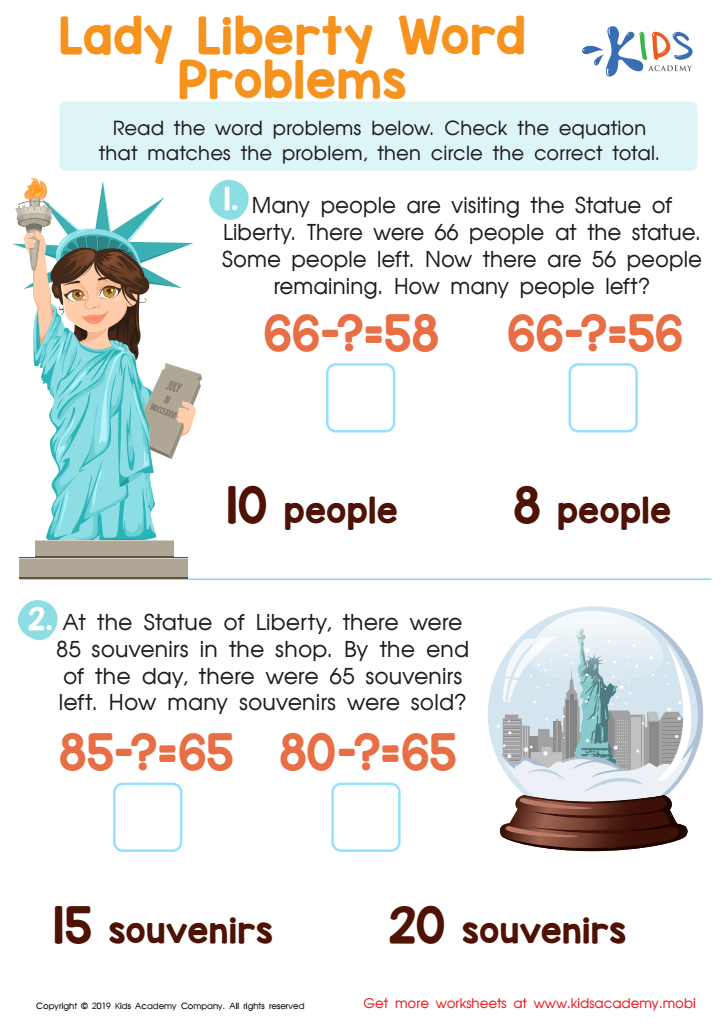

Lady Liberty Worksheet
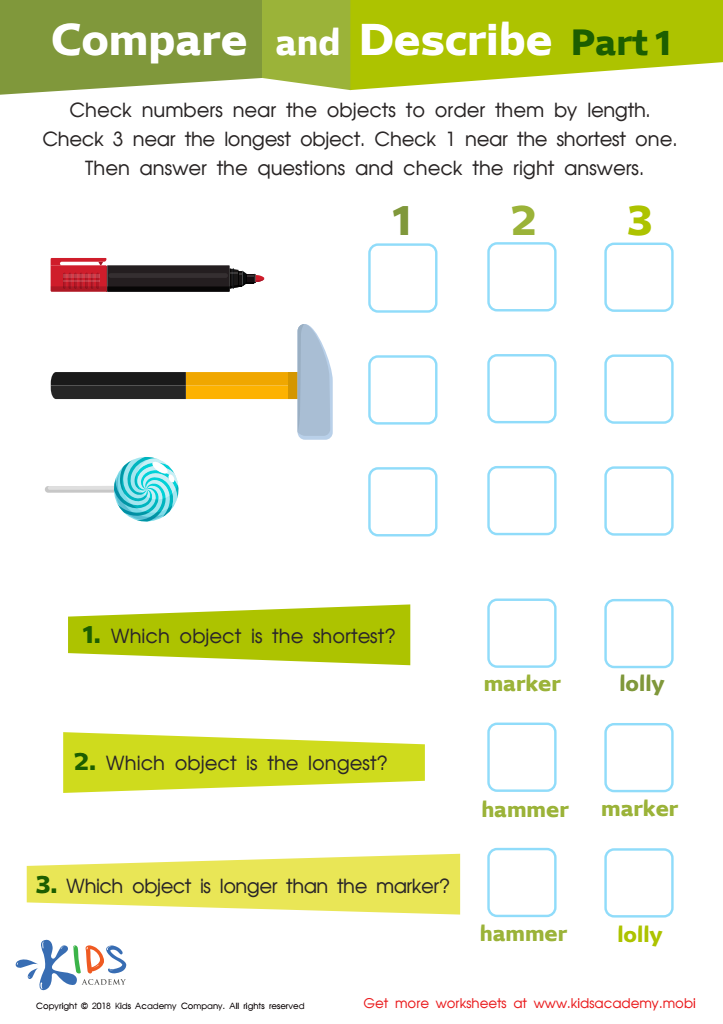

Compare and Describe: Part 1 Worksheet
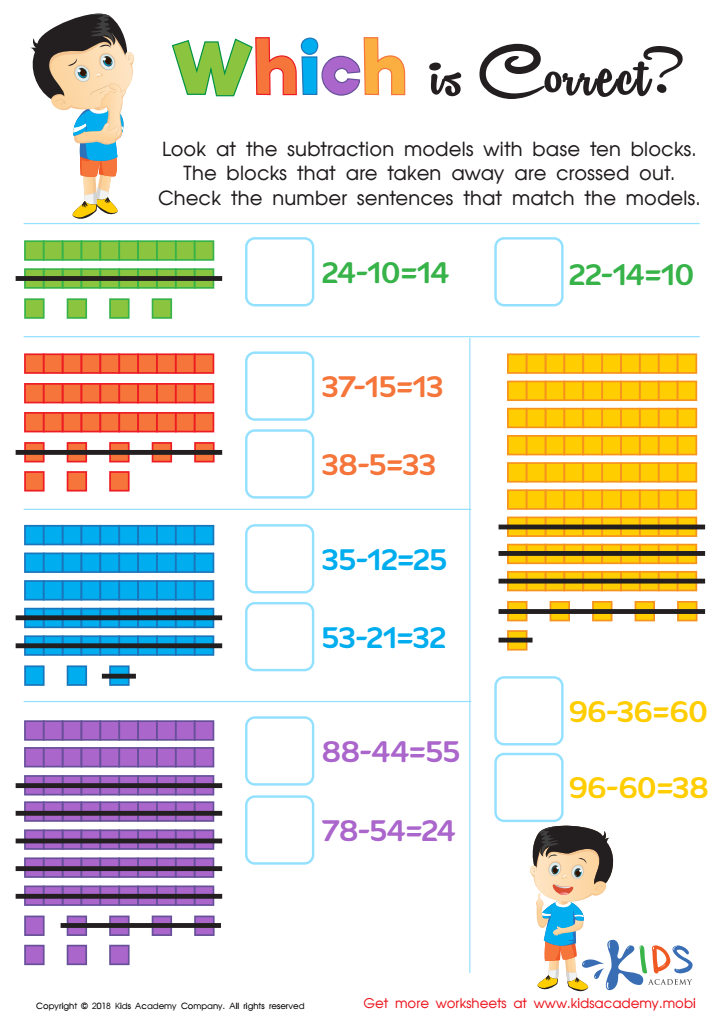

Which Is Correct? Math Worksheet
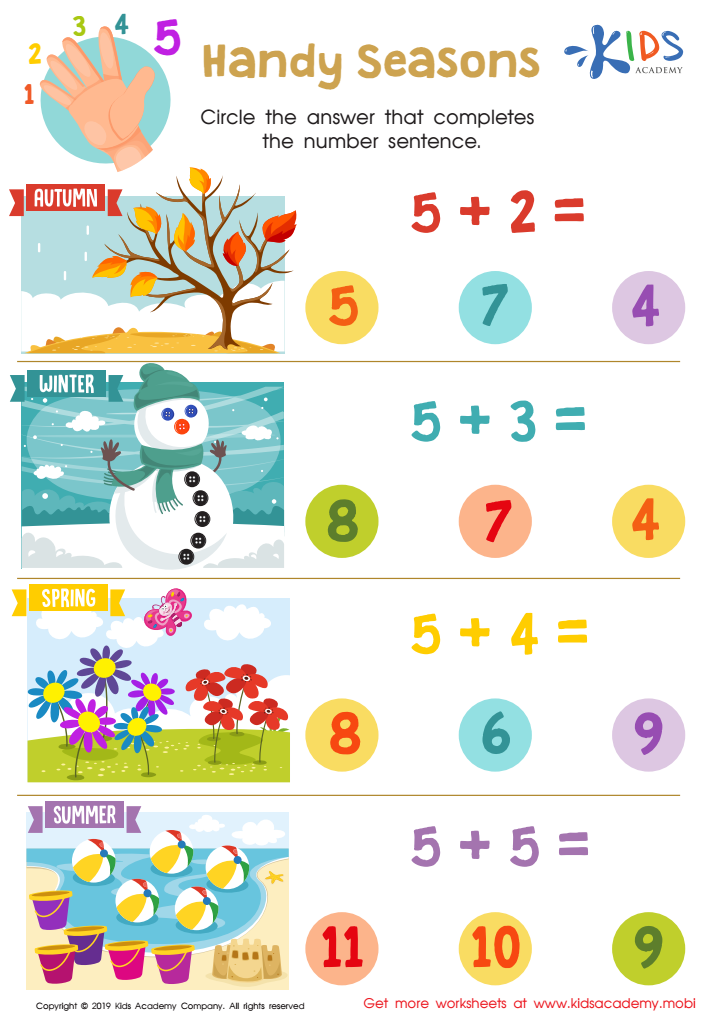

Handy Seasons Worksheet
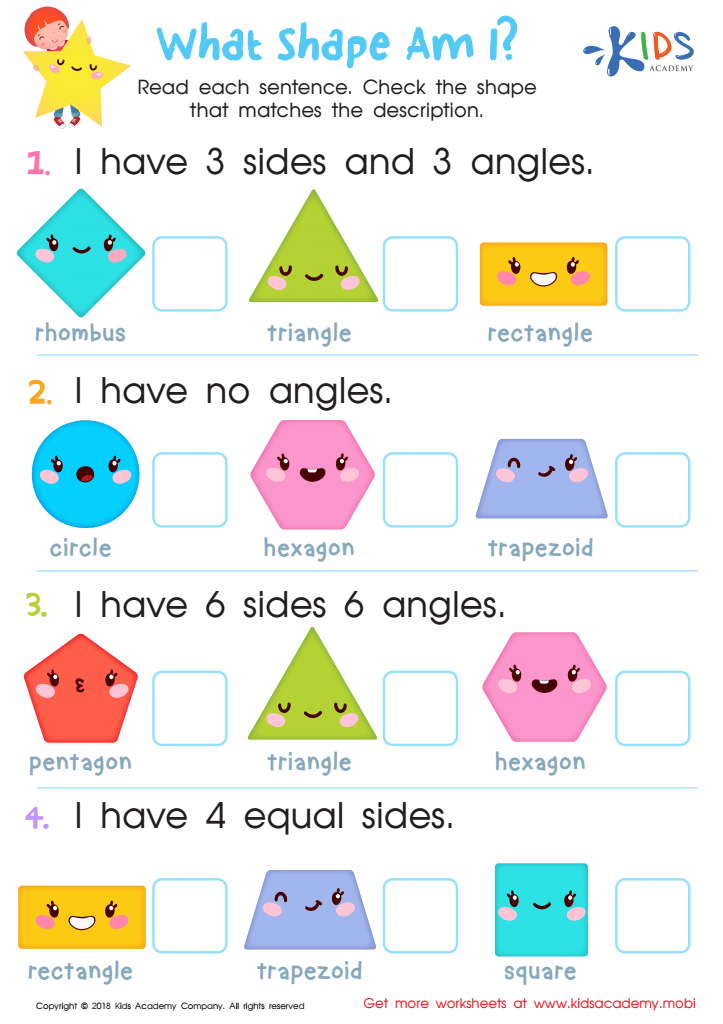

What Shape Am I? Worksheet
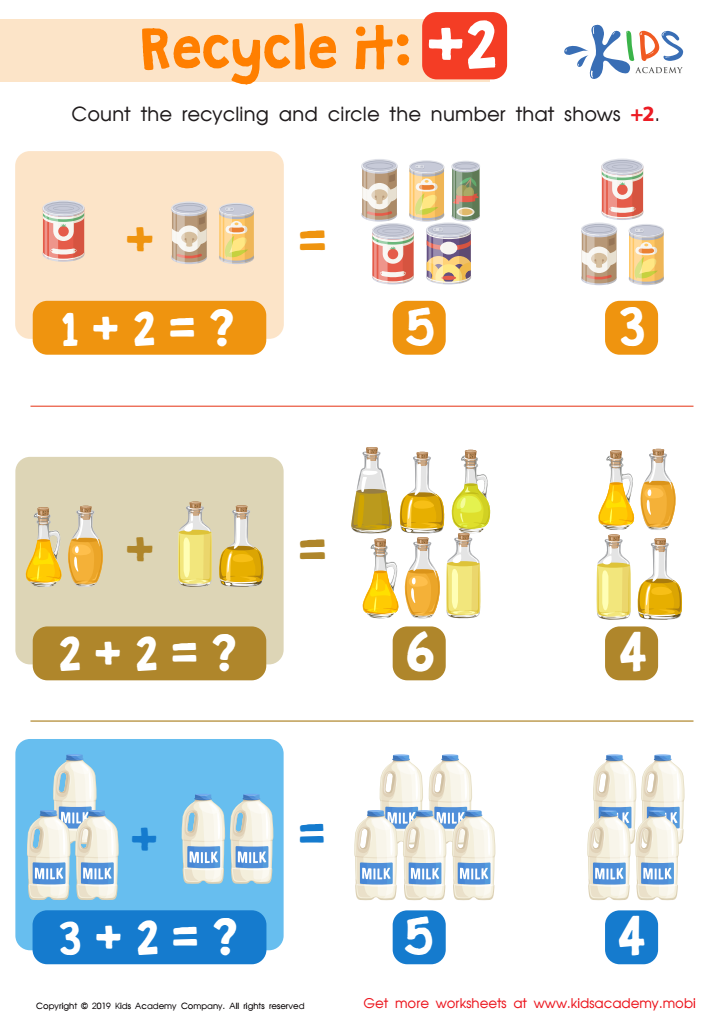

Recycle It: +2 Worksheet
Vocabulary enhancement and engaging math activities are crucial for children aged 4-6, as they lay the foundation for future learning. At this stage, children are incredibly receptive to new information, and building a strong vocabulary improves language skills and communication abilities. A rich vocabulary aids comprehension, enabling children to understand instructions, follow stories, and express their thoughts and feelings more effectively.
Furthermore, integrating math into this age group is vital. Early math skills, such as counting, recognizing patterns, and understanding simple addition and subtraction, foster logical thinking and problem-solving abilities. When vocabulary development is incorporated into math activities, it not only makes learning more engaging but also helps children articulate their thought processes and reasoning.
Parents and teachers should care about these aspects because they are interconnected; a child who can effectively communicate their understanding of math concepts will develop greater confidence and a positive attitude towards learning. Tools and techniques that enhance vocabulary through playful mathematical exercises create a holistic educational environment. This ultimately prepares children for more complex concepts, promoting lifelong learning, academic success, and a positive relationship with education. By investing in these foundational skills, they pave the way for children's future achievements.
 Assign to My Students
Assign to My Students
















